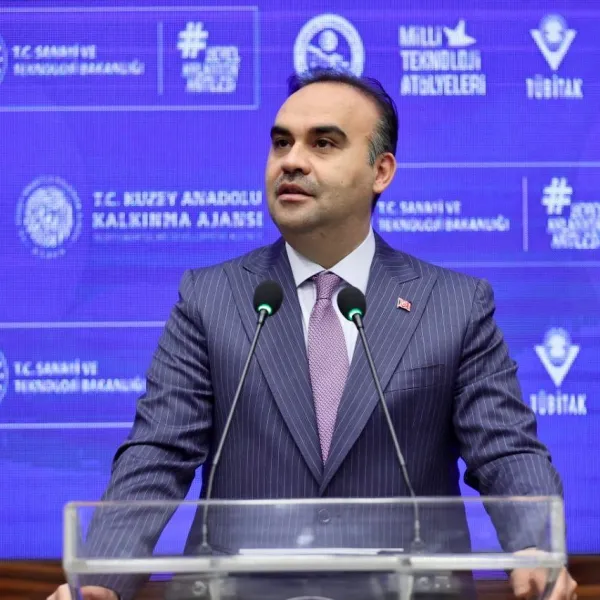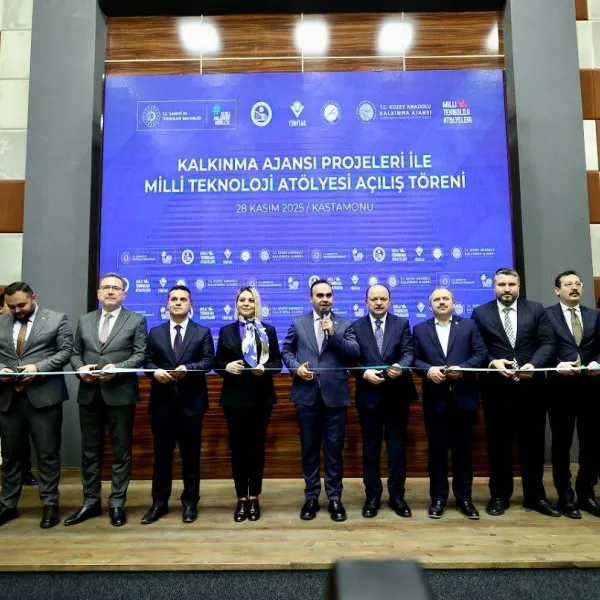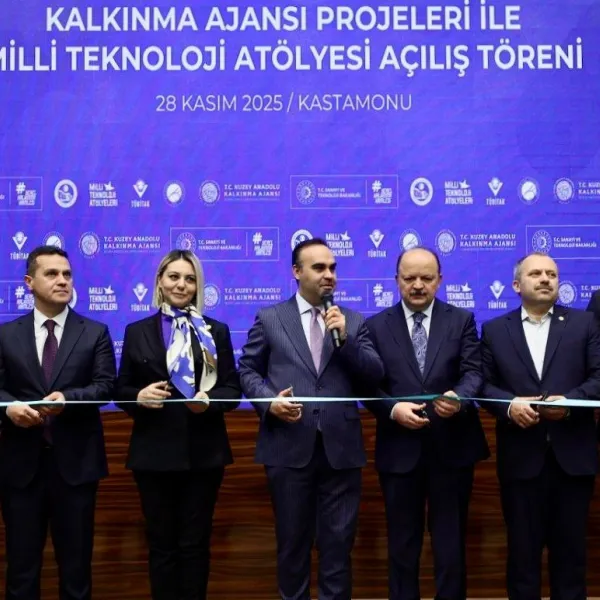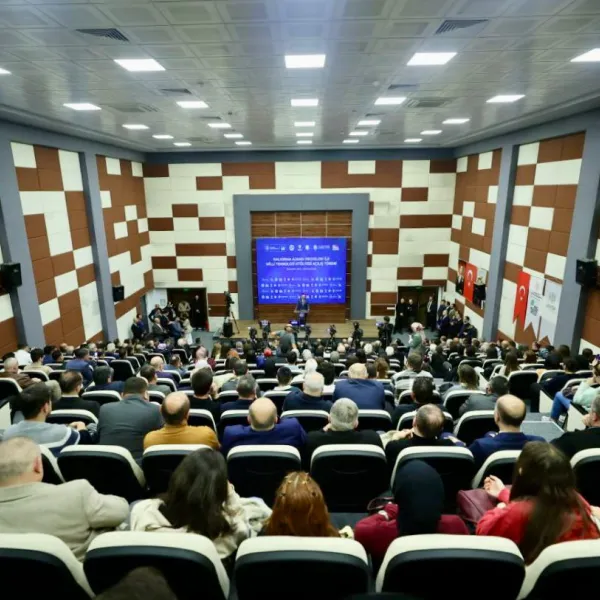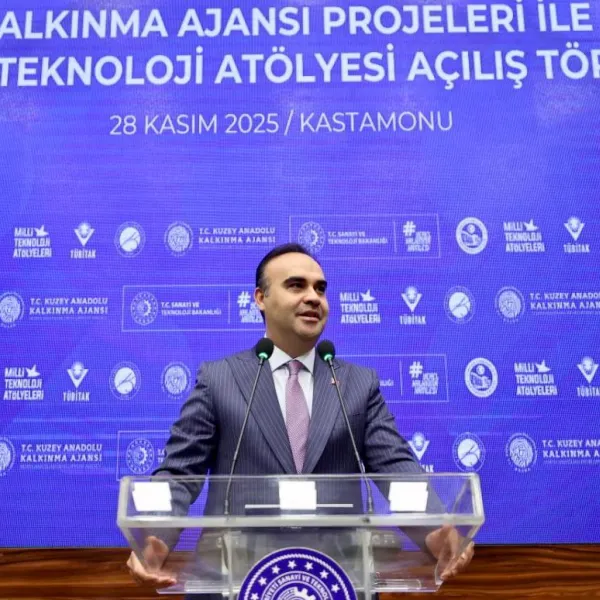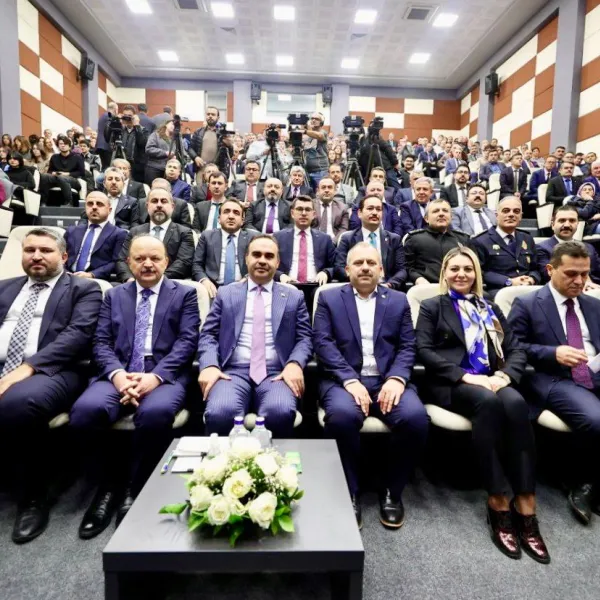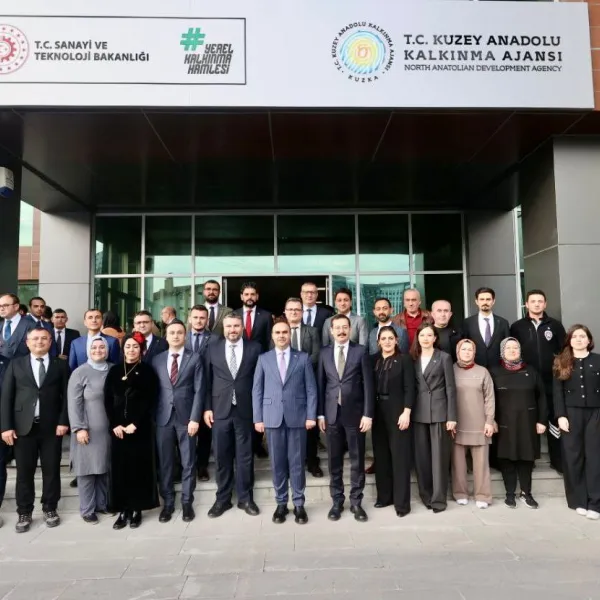Arama
SEA EU JFS-(Güneydoğu Asya ve Avrupa Ülkeleri Ortak Fonlama Programı) Nedir?
Güneydoğu Asya ve Avrupa Ülkeleri Ortak Fonlama Programı (Southeast Asia - Europe Joint Funding Scheme for Research and Innovation, SEA-EU JFS), Avrupa ve Güneydoğu Asya'daki araştırmacı ve yenilikçileri bir araya getirerek, iki bölge arasındaki iş birliğini teşvik eden bir platformdur. Program, küresel sorunlara çözüm bulmayı hedeflerken, bilimsel mükemmeliyet ve yenilik odaklı projeleri destekler.
SEA-EU JFS kapsamında bölge ülkelerinin öncelikleri göz önünde bulundurularak belirlenen tematik alanlarda çağrılar açılmaktadır (Daha fazla bilgi için SEA-EU JFS Çağrıları Sayfası ziyaret edilebilir: https://www.sea-europe-jfs.eu/calls). Bu yenilikçi projelerin, hem yerel hem de uluslararası ölçekte sürdürülebilir kalkınmaya katkı sağlaması beklenmektedir.
SEA-EU JFS, katılımcı ülkelerin ulusal fon kuruluşları tarafından desteklenir ve bu kuruluşlar yalnızca kendi ülkelerindeki ortaklara fon sağlar (“No money crossing borders”). Program, 2017'den bu yana devam etmekte olup, toplamda yüzlerce başvuru arasından yüksek kaliteli projelere fon sağlamıştır.
Desteklenen projeler arasında, uzun vadeli ortaklıklar oluşturmayı ve küresel zorluklara çözüm sunmayı hedefleyen çalışmalara öncelik verilmektedir. Bu projelere ilişkin detaylı bilgilere Desteklenen Projeler Sayfası adresinden ulaşabilirsiniz: https://www.sea-eu-jfs.eu/funded-projects
“2+1” kuralı gereğince en az üç farklı ülke ortağı içermelidir. Konsorsiyum, ikisi Güneydoğu Asya, biri Avrupa ülkelerinden yahut tam tersini içerecek şekilde oluşturulmalıdır.
Türkiye Avrupa ülkeleri arasında değerlendirilmektedir.
SEA-EU JFS çağrılarına başvuru sürecinde uygun ortaklar bulmak, konsorsiyum oluşturmak ve iş birliği fırsatlarını keşfetmek için JFS Partnering Tool sayfasını ziyaret edebilirsiniz: https://www.sea-europe-jfs.eu/info-partnering-tool
SEA-EU JFS 2025 Çağrısı kapsamında, Avrupa ve Güneydoğu Asya ülkelerinden araştırmacıların, “Yenilikçi Malzemeler ve Yeşil Dönüşüm” ile “Yapay Zekâ ve Nesnelerin İnterneti Tabanlı İklim Dirençli Akıllı Tarım” tematik alanında birlikte geliştireceği projeler desteklenecektir.
Bu kapsamda, proje konsorsiyumlarında yer alan araştırma ekiplerinin SEA-EU JFS’e yapacakları ortak başvuruya ek olarak, kendi ulusal fonlayıcı kuruluşlarına da ulusal başvuru yapmaları gerekmektedir. Konsorsiyumlarda Türkiye’den yer alacak ekipler, başvurularını TÜBİTAK’a yapacaklardır.
Katılımcı Ülkeler ve Fonlayıcı Kuruluşlar
https://www.sea-europe-jfs.eu/call/2025-sti-joint-call-proposals-new-materials-and-green-transition-climate-resilient-smart sayfasında yer almaktadır.
Başvuru Takvimi
Başlangıç Tarihi: 1 Aralık 2025
Son Başvuru Tarihi: 31 Mart 2026, saat 12:00 (CET) / 17:00 (Bangkok/Jakarta saati)
Uluslararası Başvuru Yöntemi: Başvurular, PT-Outline (https://ptoutline.eu/app/jfs25sti) üzerinden çevrimiçi olarak yapılmalıdır.
Ulusal Başvurular için: https://uidb-pbs.tubitak.gov.tr
Ulusal Başvuru Kuralları için: https://tubitak.gov.tr/sites/default/files/2025-12/SEA_EU_JFS_2025_Cagrisi_Ar-Ge_ve_Yenilik_Projeleri_Ulusal_Basvuru_Kurallari.pdf
Nazlı ÖZ YILDIRIM
TÜBİTAK - Uluslararası İşbirliği Daire Başkanlığı
İkili ve Çoklu İlişkiler Müdürlüğü
Adres: TÜBİTAK Başkanlık Tunus Caddesi No:80 06100 Kavaklıdere/Ankara
Tel: (+90 312) 298 1651
Faks: (+90 312) 427 74 83
E-posta: nazli.oz@tubitak.gov.tr
Çağrı Sekretaryası
Mr. Adam Bakhtiar
Endonezya Bilim Fonu (Dana Ilmu Pengetahuan Indonesia/DIPI)
E-posta: adam.bakhtiar@dipi.id
Ms. Patchara Umprasert
Tayland Ulusal Bilim ve Teknoloji Geliştirme Ajansı (NSTDA)
E-posta: Callsec.JFS@nstda.or.th
TÜBİTAK desteğiyle, 81 ilde Milli Teknoloji Atölyesi kurma hedefi doğrultusunda, ilk ikisi Bursa ve Kocaeli’de açılan “Milli Teknoloji Atölyeleri”nin üçüncüsü Kastamonu Üniversitesinde faaliyete geçti.
Açılış törenine Sanayi ve Teknoloji Bakanımız Sayın Mehmet Fatih Kacır’ın yanı sıra Kastamonu Milletvekili Sayın Fatma Serap Ekmekçi, Kastamonu Valisi Sayın Meftun Dallı, Kastamonu Üniversitesi Rektörü Sayın Ahmet Hamdi Topal ile TÜBİTAK Bilim ve Toplum Başkanımız Sayın Ömer Kökçam katıldı.
Teknoloji Yolculuğunda Gençlere Büyük Destek
Yeni açılan Milli Teknoloji Atölyesinde gençler yurt içi ve dışında katılacakları yarışmalar için danışmanlık hizmeti alabilecek, gerekli sanayi iş birlikleri için desteklenecek, eğitim programlarıyla kişisel ve teknik becerilerini geliştirebilecekler. Kastamonu Milli Teknoloji Atölyesinde CNC Router’dan 3 boyutlu yazıcı ve tarayıcıya, elektronik lehimleme ve montaj ekipmanlarından torna tezgâhına dek gençlerin projelerini hayata geçirirken kullanabilecekleri pek çok alet ve malzeme bulunuyor.
“Kastamonu’nun gençleri Milli Teknoloji Hamlesi’nin bayraktarları olacaklar.”
Konuşmasında Kastamonu Üniversitesinin TÜBİTAK projeleri ile TEKNOFEST yarışmalarındaki başarısına vurgu yapan Bakan Kacır ilk Milli Teknoloji Atölyelerinden birinin Kastamonu’da açılmış olmasına dair duyduğu memnuniyeti dile getirdi. Kacır ayrıca “Görüyoruz ki Kastamonu’nun gençleri Milli Teknoloji Hamlesi’nin bayraktarları olacaklar.” diyerek bilhassa Kastamonulu gençler ile kadınların istihdam ve girişimcilik yolculuğunda Sanayi ve Teknoloji Bakanlığı olarak her daim yanlarında olduklarını vurguladı.
100 Milli Teknoloji Atölyesi Hedefi
Sözlerini “Anadolu’nun tüm şehirlerinde Türkiye’nin bilim ve teknoloji atılımına, Milli Teknoloji Hamlemize katılacak gençleri ve çocukları keşfetmek bizim için çok kıymetli.” şeklinde sürdüren Bakan Kacır, önümüzdeki sene sonuna dek Anadolu’nun dört bir yanına 100 Milli Teknoloji Atölyesi açma hedeflerini hatırlattı.
“Türkiye’nin kritik teknolojileri kendi imkânlarıyla üreten bir ülke olma yolculuğuna sahip çıkacağız.”
Bakan Kacır konuşmasını şu sözlerle tamamladı: “Bir yandan Sayın Cumhurbaşkanımızın liderliğinde Türkiye’nin Milli Teknoloji Hamlesi yolculuğunu en ileri hedeflere taşıyacak, tam bağımsızlık şiarımızdan asla taviz vermeksizin Türkiye’nin kritik teknolojileri kendi imkân ve kabiliyetleriyle geliştiren ve üreten bir ülke olma yolculuğuna en güçlü şekilde sahip çıkacak, bir yandan da yerel kalkınma hamlesi perspektifiyle kalkınmayı, refahı Anadolu’nun dört bir yanına hızla el birliğiyle taşıyacağız.”
Milli Teknoloji Atölyeleri Amaç ve Önemi
Ülkemizin Milli Teknoloji Hamlesi hedefleri doğrultusunda öğrencilerimizin hayallerini, fikirlerini ve projelerini hayata geçirmelerine olanak sağlamak amacıyla 81 ilde Milli Teknoloji Atölyesi kurma hedefimiz var.
Bu atölyelerde, milli teknolojiler geliştirecek ve üretecek gençlerimize destek vererek yerli ve milli sanayimiz için ihtiyaç duyulan nitelikli insan kaynağını yetiştirecek ve girişimci gençlerimizin ihtiyacı olan teknik ve mesleki eğitim süreçlerini destekleyeceğiz.
Üniversitelerde ve TÜBİTAK destekli eğitim kurumları ile bilim merkezlerimizde Milli Teknoloji Atölyeleri kurarak bilim ve teknoloji yarışmalarına katılacak takımlara ihtiyaç duyduğu makine, teçhizat ve sarf malzeme desteği sağlayacağız.
Ulusal ve uluslararası bilim ve teknoloji yarışmalarına hazırlanan ortaokul, lise, lisans, yüksek lisans ve doktora öğrencileri ve mezunlarının hedef kitle olduğu Milli Teknoloji Atölyeleri kapsamında ekipman ve sarf yardımının yanı sıra danışmanlık, eğitim programları, sanayi iş birlikleri, tanıtım ve farkındalık çalışmaları ile ulusal ve uluslararası yarışmalar için hazırlık desteği sağlanacak.
Dünya Bankası desteğiyle Sanayi ve Teknoloji Bakanlığı’nın koordinasyonunda TÜBİTAK ve KOSGEB tarafından yürütülen Türkiye Yeşil Sanayi Projesi çerçevesinde KOBİ’lerin Yeşil Dönüşüm mevzuatlarına uyum kapsamında gereklilikleri karşılamak üzere alacağı teknik yardım 1831 Yeşil İnovasyon Teknoloji Mentörlük Çağrısı ile desteklenecektir.
Yeşil teknolojiler konusunda güncel teknolojiler için firmaların teknoloji danışmanlığı, kapasite ya da durum analizi, mevcut problemlerin tespiti ve çözüm yaklaşımları ve yol haritası hazırlama gibi konularda uzman kuruluşlardan alacakları hizmetin %90’ı hibe destek olarak TÜBİTAK tarafından karşılanacaktır. Destek süresi 6 ay olup, proje bütçesi üstü limiti 280.000 TL’dir. TÜBİTAK, KOBİ’lere yönelik bu hizmetin Çözüm Ortakları aracılığı ile verilmesini sağlayacaktır.
Küçük/orta ölçekli işletmelerin inovasyon kapasitelerini artırmaya yönelik uluslararası araştırma projelerini destekleyen IRASME kendi kendini idame eden uluslararası bir ağdır. Sekreteryası AIF (German Federation of Industrial Research Associations - Alman Endüstriyel Araştırma Dernekleri Federasyonu) tarafından yürütülen ve üyelik aidatı bulunmayan IRASME ağına üye ülkeler arasında Almanya, Avusturya, Belçika, Brezilya, Çekya, Lüksemburg ve İsviçre yer almaktadır.
- Ağın amacı, KOBİ’lere uluslararası yenilik projeler aracılığı ile teknolojik know-how kazanmaları, gerekli işbirliği ağlarında bulunması ve küresel rekabet edilebilirliklerinin geliştirilmesidir.
- Ülkemizden KOBİ – akademi işbirliğinde yapılan başvurular tercih nedenidir ve en az 2 üye ülkenin yer aldığı projeler desteklenebilmektedir.
- Proje bütçesinin en az %50’sinin özel sektöre gitmesi gerekmektedir.
Ayrıntılı bilgi için IRASME sitesini ziyaret edebilirsiniz.
IRASME Ağı'nın 37. Çağrısı küçük ve orta ölçekli işletmelerin ağ üyesi ülkelerle geliştirdiği ortak Ar-Ge ve yenilik projelerini desteklemeyi amaçlamaktadır.
25 Mart 2026 tarihine kadar açık kalacak olan çağrı ile çağrıya katılan ülkeler ile ikili ve çok taraflı iş birliğine olanak tanınmaktadır. Çağrıya katılan ülkeler arasında Almanya, Belçika (Flaman ve Valon Bölgeleri), Brezilya, Çekya, Lüksemburg ve ülkemiz yer almaktadır. IRA-SME 37. Çağrısı kapsamında iş birliği görüşmeleri için çevrim içi bir platform oluşturulmuştur. Söz konusu platforma giriş için buradan kayıt oluşturulması gerekmektedir. Ayrıca, 20 Ocak 2026 tarihinde saat 16:00 (Türkiye saati ile) çağrının diğer katılımcı ülkeleriyle birlikte çevrim içi bir bilgi günü düzenlenecektir. Bilgi gününe katılım için buradan kayıt oluşturulması gerekmektedir.
Çağrıya ülkemizden yapılacak projelerde sanayi-akademi işbirliği önerilmekle beraber çağrı ortağı en az 2 ülkenin yer aldığı KOBİ-KOBİ işbirliği projeleri desteklenebilecektir.
Başvurularda her ülkeden en az 1 KOBİ’nin yer alması gerekmektedir ve toplam proje bütçesinin en az %50’si özel sektör ortaklarına ayrılmalıdır.
- Proje süresi en fazla 36 ay olabilir.
- Bir proje kapsamında TÜBİTAK’tan talep edilen katkı Kurum Hissesi ve Proje Teşvik İkramiyesi (PTİ) hariç;
- Proje başına 325.000 Avro’yu,
- Yürütücü kuruluş başına;
- Yükseköğretim kurumları, eğitim ve araştırma hastaneleri ve kamu kurum ve kuruluşları için 100.000 Avro’yu,
- Özel kuruluşlar için 325.000 Avro’yu aşamaz.
- Yükseköğretim kurumları, eğitim ve araştırma hastaneleri ve kamu kurum ve kuruluşları için 100.000 Avro’yu,
TÜBİTAK’tan talep edilen katkı, proje bütçesi ile destek oranının çarpılmasıyla elde edilir. Birden fazla yürütücü kuruluşun yer aldığı projelerde, TÜBİTAK’tan talep edilen katkı, her bir yürütücü kuruluşun proje bütçesi ile destek oranının çarpılması sonucu elde edilen tutarların toplamıdır.
Uluslararası başvuru ile birlikte ulusal başvuru da yapılması gerekmektedir. Bu kapsamda, Türkiye’de yerleşik üniversite, kamu kurumu ve özel sektörden araştırmacılar başvurularını http://uidb-pbs.tubitak.gov.tr/ adresinden gerçekleştirmeleri gerekmektedir.
Başvuruların ulusal kurallara uygun bir şekilde hazırlanması gerekmektedir. Kurallar ve ulusal başvurularda istenen belgelerin listesi Ulusal Kurallar ve Süreçler dokümanında listelenmektedir.
Son Başvuru Tarihi (Uluslararası Başvuru): 25 Mart 2026 (www.ira-sme.net)
Son Başvuru Tarihi (Ulusal Başvuru): 1 Nisan 2026, 23:59 (https://uidb-pbs.tubitak.gov.tr)
E-imza Son Tarihi: 8 Nisan 2026, 23:59

